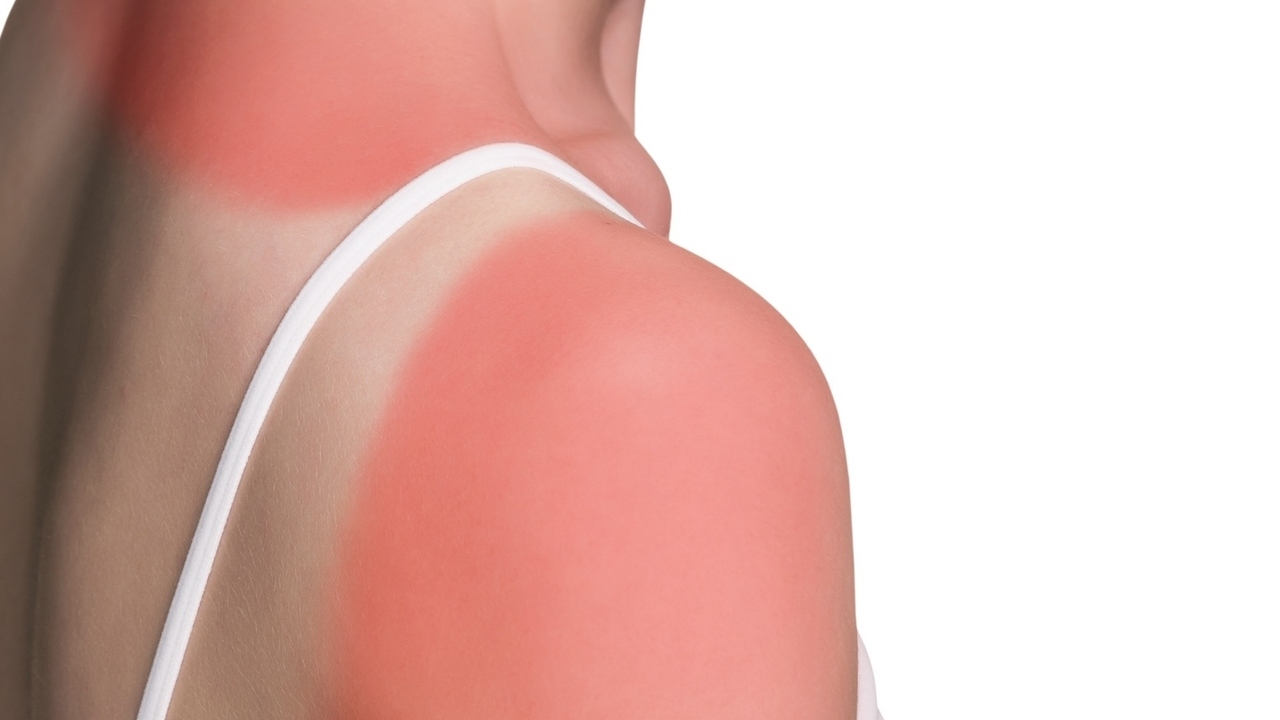 narstudio/Fotolia
narstudio/Fotolia
Choosing the right sunscreen is a key step for skin protection, because if you don’t like your sunscreen, you won’t use it. Start by deciding which type of sunscreen is right for you.
All sunscreens contain active ingredients to protect your skin from damaging rays of the sun, according to the American Academy of Dermatology. These sunscreens are all regulated as over-the-counter drugs by the U.S. Food and Drug Administration. (1)
Sunscreens come in two basic types:
• Chemical sunscreens work by absorbing UV rays from the sun. They contain active ingredients such as oxybenzone and avobenzone.
• Mineral sunscreens work by putting a physical barrier on the skin that blocks the sun’s UV rays from penetrating into the skin. Active ingredients in mineral sunscreens include zinc oxide and titanium oxide.
The thought of mineral sunscreens may bring to mind images of people with a streak of white cream left behind from older forms of zinc oxide. Current mineral sunscreens don’t leave that kind of residue on the skin.
According to a report in the Huffington Post, mineral sunscreens may be less likely to irritate your skin than chemical sunscreens.(3)
The AAD recommends mineral sunscreens as the most appropriate choice for toddlers and infants older than six months. Children younger than six months should be kept out of the sun rather than using sunscreen.
Mineral sunscreens are also considered by some to be safer than chemical sunscreens. Some studies suggest that vitamin A used in some sunscreens may cause skin tumors and lesions to grow faster when combined with sunlight.(3)
The AAD states that these, and other claims that chemical sunscreens may be hazardous, have not been proven. (1)
Whether you choose a chemical or mineral sunscreen, the AAD recommends using sunscreen with an SPF of 30 or higher. SPF 30 blocks 97 percent of the sun’s ability to burn your skin.
No sunscreen is able to block 100 percent of the sun’s damaging rays. So choosing a higher SPF will not provide much additional protection.
All sunscreen manufacturers must meet FDA safety testing requirements to verify that the SPF on the label is correct. However, not all sunscreens live up to their advertised claims.
According to CBS News, 28 out of the 65 sunscreens recently tested by Consumer Reports failed to deliver the SPF coverage on the label. All of the tested sunscreens were SPF 30 or higher.
"There's a ... very little difference between the protection that you get from an SPF of 50 and an SPF of 100, so you really don't need to go to that high, but in our tests we found that if you choose a chemical sunscreen with an SPF of 40 or higher, you have a great chance of getting at least an SPF 30," Trisha Calvo, Consumer Reports' deputy content editor of health and food, told CBS This Morning. (2)
The Consumer Reports study also showed that, overall, chemical sunscreens out-performed mineral sunscreens for sunburn protection. However, the report also noted that mineral sunscreens may be less irritating to the skin.
The AAD states that skin cancer is the most common cancer in the United States, and is estimated to affect one out of every five people.(1) Protecting skin from the harmful rays of the sun can help prevent this disease.
In addition to an SPF of 30 or higher, the AAD recommends that the sunscreen be broad spectrum and water-resistant.
Ultimately, the best sunscreen is the one you will actually use.
Whether you choose a mineral or chemical sunscreen, make sure you use it every day, and reapply it at appropriate intervals whenever you are in the sun. An average adult will need approximately a shot glass full of sunscreen to fully cover all exposed skin.
For even better skin protection, stay in the shade and wear protective clothing including a long-sleeved shirt, pants, a hat with a wide brim and sunglasses.
If you have questions about the health of your skin or your risk of developing skin cancer, talk to your health care provider.
Reviewed May 23, 2016
by Michele Blacksberg RN
Edited by Jody Smith
1) Talking points for interviews on Consumer Reports Sunscreen study. American Academy of Dermatology. Web. Retrieved May 19, 2016.
https://www.aad.org/members/media-toolkit/dermatology-issues-in-the-news/talking-points-for-interviews-on-consumer-reports-sunscreen-study
2) Sunscreens: What’s really working and what’s not. CBS News. Web. Retrieved May 19, 2016.
http://www.cbsnews.com/news/consumer-reports-which-sunscreens-live-up-to-product-claims-keep-skin-safe
3) 3 Reasons Why You Should Try Mineral Sunscreen. Huffington Post. Dana Oliver. Web. Retrieved May 19, 2016.
http://www.huffingtonpost.com/2015/04/30/mineral-sunscreen_n_7173098.html
4) American Academy of Dermatology. Web. Retrieved May 19, 2016.
https://www.aad.org/public/spot-skin-cancer/learn-about-skin-cancer/prevent/sunscreen-labels/how-to-decode-sunscreen-lingo
5) American Academy of Dermatology. Web. Retrieved May 19, 2016.
https://www.aad.org/media/news-releases/the-first-steps-of-sun-protection-how-to-keep-your-baby-safe





Add a CommentComments
There are no comments yet. Be the first one and get the conversation started!